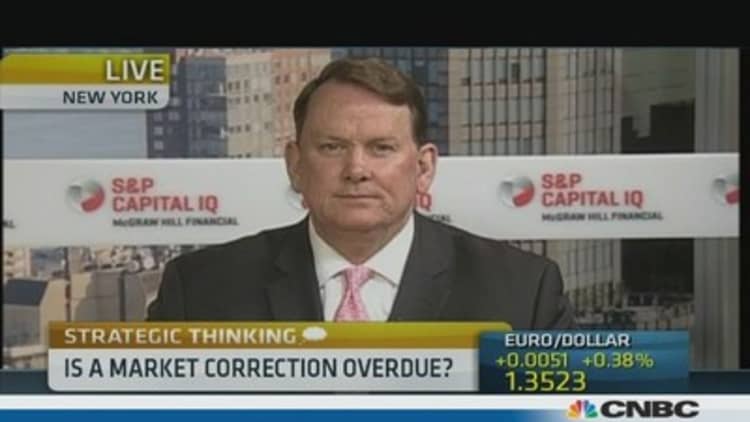Fiscal fear fatigue. That's what it seems like on the Street. Tired of following the endless rounds of machinations over the continuing resolution, the debt ceiling, and Obamacare.
More important is the fact that stocks are getting no lift from lower rates, even though the 10-year yield is now at the lowest level since mid-August. This should be beneficial to interest rate sensitive groups such as real estate investment trusts, home builders, and utilities, but it's not.
Speaking of home builders, they are up today as Mortgage Bankers Association reported mortgage applications to buy homes rose 6.6 percent in the week ended Sept. 20.
(Read more: Rates taking steam out of housing, data suggest)
Elsewhere:
1) Alibaba listing in the U.S.? That's a big one, if true. Some talk that the exchange would not allow Alibaba's partners to retain control over board nominations. Would they be allowed to do that in the U.S.? Unclear.

Another possible reason for interest in a U.S. listing: U.S.-traded China-based companies are doing great this year, particularly those connected to the internet or e-commerce: Dangdang, up 126 percent this year; E-House, up 120 percent; Sina, up 58 percent; Baidu, up 50 percent; and Youku, up 45 percent.
They haven't filed in the U.S. yet, so there is still an air of unreality about it. But at $70 billion or so, it would be a big one. The New York Stock Exchange has "no comment" on whether they will list there or have been contacted.
(Read more: )
2) Pension rebalancing time again. With the S&P 500 up 5.7 percent this quarter, there have been a number of notes out in the past couple days estimating the impact of pension rebalancing on stock trading in the next few days. Most pension funds have targets for equity/bond allocations (say, 60 percent stocks/40 percent bonds) that must be rebalanced on a periodic basis. Morgan Stanley estimates that 15 percent of plans rebalance every quarter, 15 percent every month, and 70 percent rebalance whenever the equity or fixed income weights breach their policy rebalance bands, which means they can do it at any time.
That means roughly 30 percent of pension plans will be rebalancing at the end of this month. Given the gains in stocks this quarter, they estimate that $22 billion of equities will be sold and $13 billion in fixed income will be bought shortly.
—By CNBC's Bob Pisani


